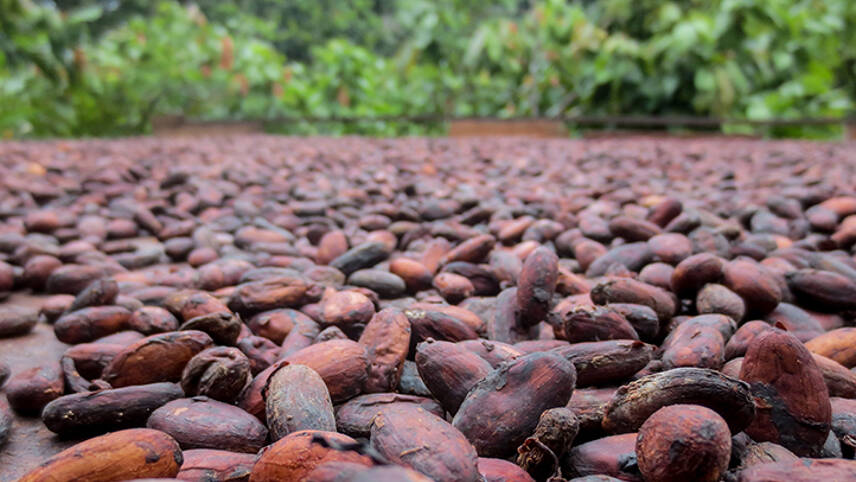Register for free and continue reading
Join our growing army of changemakers and get unlimited access to our premium content

Colombia is recognised as a major global cocoa producer, and one of the top exporters of fine flavour cacao in the world. But like many areas which rely heavily on agricultural output, the effects of economic, social and environmental change are putting Colombia’s cocoa farms at risk.
Income disparities, unequal and insufficient access to quality education and threatened ecosystems leave cocoa farmers vulnerable to instances of low productivity, diseased crops and resource deprivation – this is wholly unsustainable.
At Luker, we believe that collaboration between manufacturers and farmers is key to addressing these issues and driving social and environmental improvements in the cocoa sector.
Shared value at origin
Sharing value, by definition, involves establishing farmers as partners in the production process, improving working conditions and boosting profits as a result . Many food production companies have introduced shared value models, but by creating shared value at origin – as we’ve done at Luker – we raise employment rates in local communities, offer better remuneration for cocoa production and improve access to education.
Creating shared value at origin starts with cocoa manufacturers and companies working towards long-term partnerships with farmers and engaging with communities to help promote quality education, agricultural best practices, and innovation. Instead of prioritising short-term financial gains, it’s important to make each actor in the supply chain, including farmers, an autonomous stakeholder. This ensures each actor is held accountable, but also gives them the complete freedom to take ownership of the quality of their product, as well as their relationship with the environment.
Anchoring on-the-ground support
Localising your approach to supply chain management helps to strengthen communities and understand the unique challenges each region faces. The temperature, soil and weather conditions can dramatically shift between cocoa farms, and the industry needs to understand these problems in order to tailor sustainability initiatives to the needs of each region.
The only way to ensure that you are hearing and addressing the needs of farmers is to offer on-the-ground support. As Luker Chocolate’s Sustainability Director, active engagement with these key stakeholders through in-person meetings is where I gain the most valuable insights about the effects of climate change, financial and societal pressures on cocoa farming – and how we can best work together to combat them.
It’s vital to embed shared values from manufacturers and communities through a range of initiatives with tangible impacts. Born out of our long-term vision to transform rural Colombian communities, our collaborative sustainability platform ‘The Chocolate Dream’ seeks to combine research, experience, passion and technology from Luker’s own farms in key cocoa-producing regions with the surrounding communities, to build a more sustainable and resilient chocolate industry. These anchor farms offer on-the-ground support so farmers can share knowledge and learn best practice within the context of their region. Last year, we helped 490 families increase their income, and committed to the environmental protection of 2000 hectares of land which prevents future deforestation and boosts biodiversity.
Benefits for the wider industry
Long-term sustainability and resilience don’t have to mean reduced profits or productivity. Our experience shows that close collaboration with actors in supply chains result in greater farmer profits, increased crop productivity and better education on sustainable agriculture.
This year through The Cacao Effect, one of The Chocolate Dream’s programmes, and a collaborative alliance between international organisations and NGOs, we’ve also worked with 850 cocoa farmers to improve the living conditions of Colombian cacao farmers and their communities. What’s staggering – but not surprising – is that 91% have seen their productivity increase as a result; in addition, 1,830 hectares of cocoa crops have been protected through education in agroforestry and biodiversity.
In 2021, we helped a cohort of 31 rural entrepreneurs mostly led by women, in order to have an extra family income and an empowered community. The result? 70% of them increased their earnings considerably – some by as much as 35%.
Through collaboration, we offer these microeconomies the educational resources and appropriate support to be more resilient to growing supply chain pressures and the threat of environmental, political and economic crises. Direct and engaged relationships between manufacturers and communities mean we can better understand current issues and become part of the solution; ensuring a robust supply chain where cooperation and collaboration foster a respectful, fair and profitable industry.



Please login or Register to leave a comment.